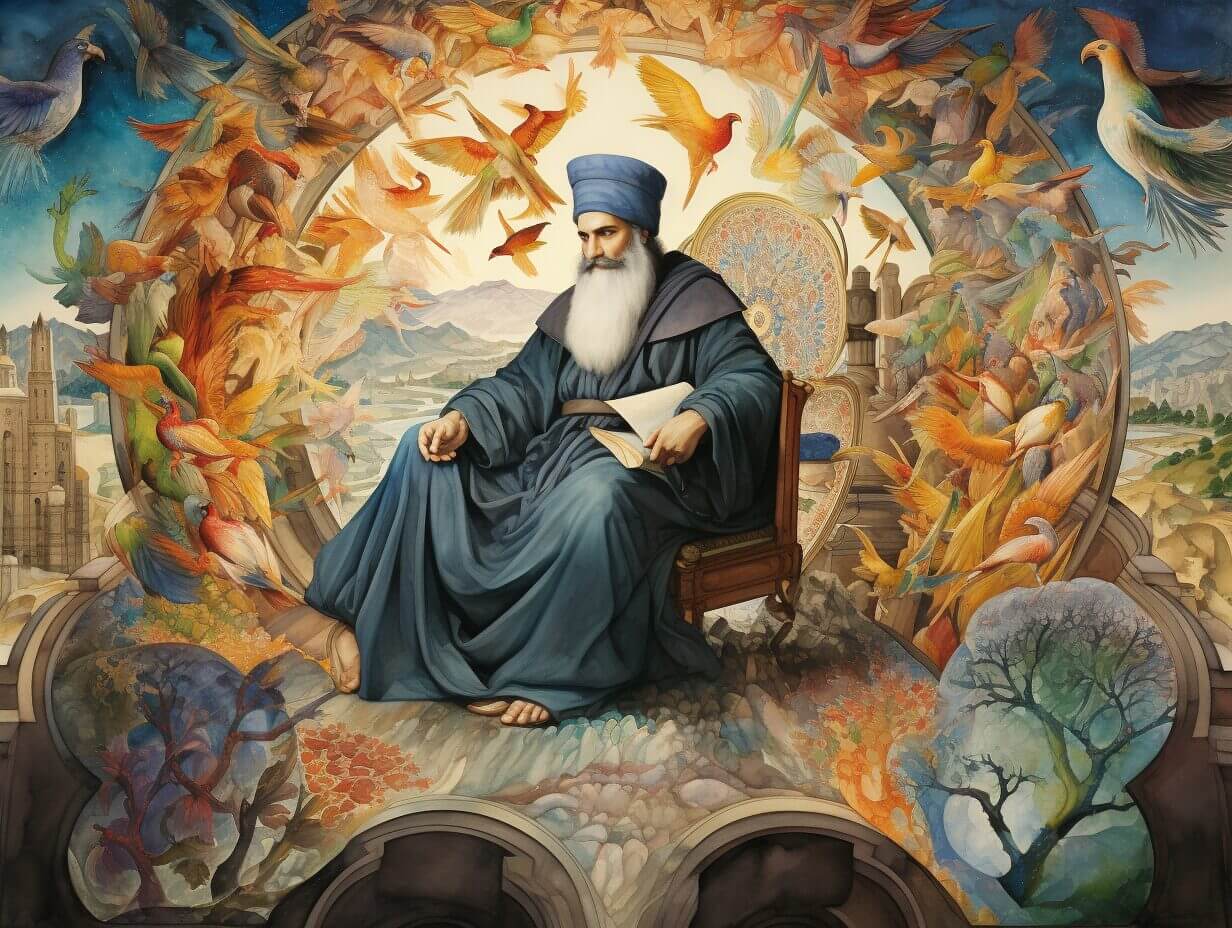Nawaz Akhtar
Rūmī, born in 1207 in Balkh (modern-day Afghanistan) and passed away in 1273 in Konya (modern-day Turkey), was an eminent Sufi mystic and poet known for his profound impact on Persian literature and mystical thought across the Muslim world.
The journey of Jalāl al-Dīn, also known as Rūmī, was not just a physical one, but a profound spiritual odyssey. His path was shaped by the teachings of his father, Bahāʾ al-Dīn Walad, as they fled from their hometown of Balkh to Anatolia due to political instability. In Konya, Rūmī’s spiritual growth was not just influenced, but transformed by Burhān al-Dīn Muḥaqqiq and a significant encounter with Shams al-Dīn of Tabrīz, a moment that deeply impacted Rūmī’s poetic expression. The disappearance of Shams led Rūmī to contemplate love, longing, and loss, which became central themes in his poetry.
The encounter with Shams al-Dīn, a wandering dervish, was a transformative moment in Rūmī’s life and poetry. The intense bond between them, marked by love and separation, inspired Rūmī’s poetic outpourings. His lyrical poems, particularly the ghazals and robāʿīyāt, vividly reflect his emotional journey and ultimate spiritual awakening, serving as a testament to the profound influence of his poetry on his spiritual growth.
After experiencing another profound spiritual connection with Ṣālāḥ al-Dīn Zarkūb and later Ḥusām al-Dīn Chelebi, Rūmī was inspired to compose the Mas̄navī-yi Maʿnavī, a didactic epic consisting of nearly 26,000 couplets. This work, influenced by the teachings of Ḥusām al-Dīn, encompasses various aspects of Sufism, reflecting the multifaceted nature of Rūmī’s spiritual experiences and his profound love for the divine.
Following Rūmī’s passing, his spiritual legacy was continued by Sulṭān Walad, who organized Rūmī’s disciples into the Mawlawiyyah order known as the Whirling Dervishes. Rūmī’s mausoleum in Konya remains a revered place of pilgrimage. His poetry and teachings continue to resonate across diverse cultures, making Rūmī’s work a timeless source of inspiration for spiritual seekers worldwide.
Rumi’s mysticism remains profoundly relevant in the context of modern times due to its enduring ability to address the complexities of contemporary existence. In today’s rapidly changing and interconnected global landscape, Rumi’s teachings on love, spirituality, and the quest for divine union continue to provide invaluable insights that resonate with individuals from diverse cultural, religious, and philosophical backgrounds.
The universal themes found in Rumi’s poetry, such as the transformative power of love, the pursuit of inner peace, and the transcendence of ego, offer profound guidance for navigating the challenges of modern life. Rumi’s emphasis on deep introspection, empathy, and compassion speaks directly to the quest for personal fulfilment and emotional well-being that is increasingly valued in today’s society.
In an age characterized by technological advancements, Rumi’s mysticism serves as a compelling reminder of the intrinsic human desire for spiritual connection and meaning beyond material pursuits. His profound insights into the nature of existence and the human condition provide a timeless framework for contemplation and self-discovery, offering solace and wisdom to individuals grappling with the complexities of contemporary existence.
Moreover, Rumi’s inclusive and pluralistic approach to spirituality offers a compelling vision for fostering greater understanding and harmony in a world marked by cultural diversity and religious pluralism. His teachings on unity, tolerance, and the universality of human experience provide a profound counterpoint to the divisions and conflicts that persist in the modern era, serving as a catalyst for dialogue, empathy, and mutual respect across diverse communities.
Ultimately, Rumi’s mysticism endures as a beacon of timeless wisdom, offering profound insights and guidance for individuals seeking to navigate the multifaceted challenges and opportunities of contemporary life.
















